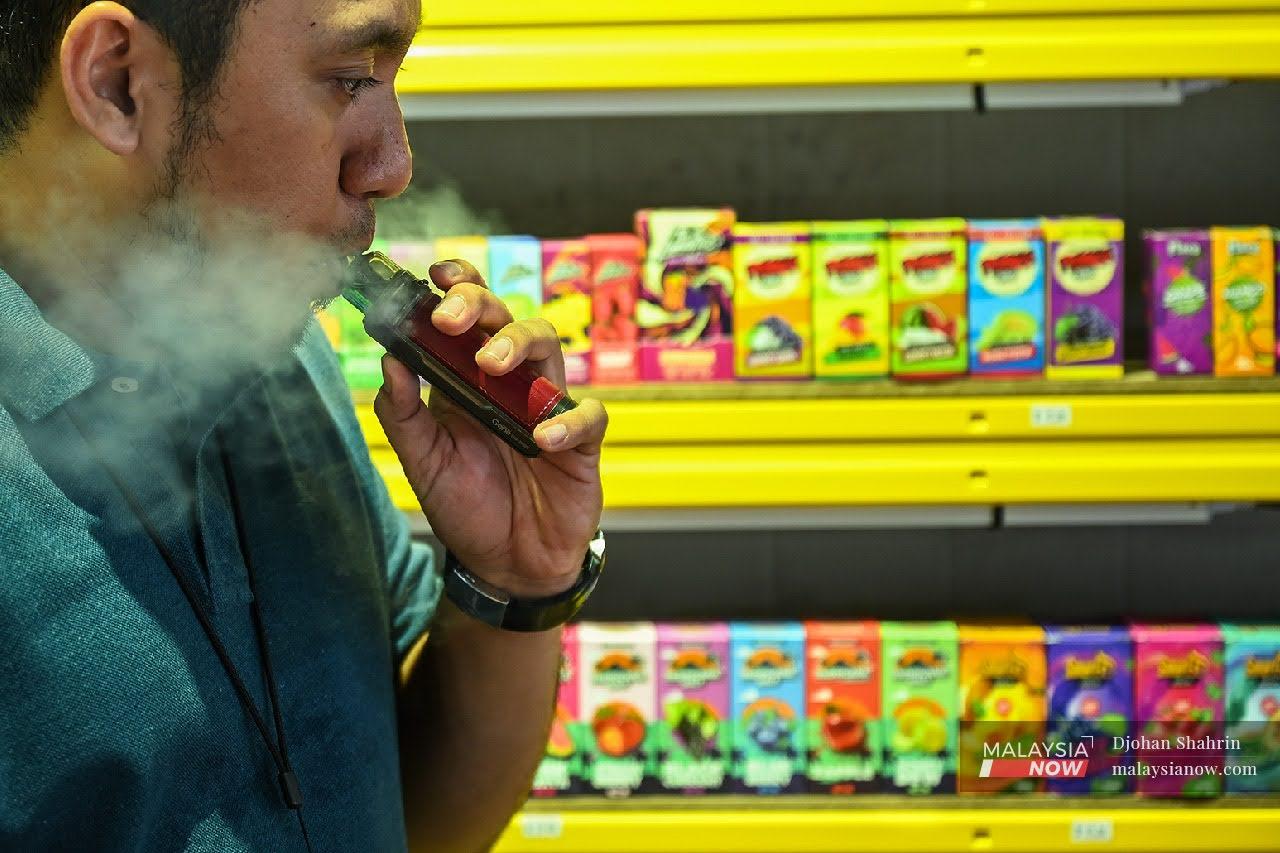Public health think tank calls for taxes on vape, higher duties on cigarettes
Galen Centre for Health & Social Policy says greater efforts are needed to address non-communicable diseases.
Just In
Think tank Galen Centre for Health & Social Policy today called for an increase in tobacco taxes and the imposition of a similar tax framework for vape and e-cigarettes as one of several health-related measures ahead of the budget for 2022.
Galen CEO Azrul Mohd Khalib said the call came as excise duties on tobacco products, especially cigarettes, had been frozen since 2015.
He suggested a 61.8% increase in cigarette taxes from the current retail price to RM24.90 per box.
“Studies show that this increase in duties could potentially contribute RM3.36 billion in tax revenue, a 30% increase to what was collected in 2019,” he added.
In a statement, he said the government should also impose taxes on products such as vape and e-cigarettes.
“The excise duties should cover nicotine and non-nicotine e-liquids and juices,” he said.
The proposals were part of Galen’s larger call for the government to strengthen its commitment towards addressing non-communicable diseases (NCDs) which it said are expected to have significantly worsened since the onset of the Covid-19 pandemic.
Azrul said the health budget should be increased to between RM35 and RM40 billion, while new funding should be channelled to preventing and treating cancer, diabetes, and cardiovascular diseases.
“If we are to deal with existing health issues, ageing equipment, retaining skilled personnel, preparing and ensuring resilience to future pandemics such as Covid-19, much of Malaysia’s health infrastructure, including its people, needs additional investments and modernising,” he said.
“This is definitely not the time to under-invest in health.”
He also called for a sustainable cancer fund and investments to boost the healthcare infrastructure in Sabah and Sarawak.
Adding that 3.9 million people are currently living with diabetes, he said more than 66,000 Malaysians are expected to be newly diagnosed with cancer each year by 2030 while a third of the population suffers from hypertension.
“The chronic nature of NCDs means patients are sick and suffer longer and require more medical care. The resulting economic costs are high and escalating.
“According to the health ministry and World Health Organization in 2020, cardiovascular diseases, diabetes and cancer cost nearly RM billion productivity losses annually to the Malaysian economy,” he said.
Subscribe to our newsletter
To be updated with all the latest news and analyses daily.
